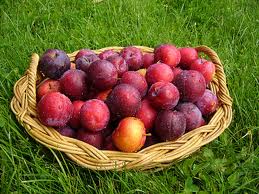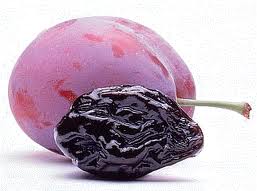Do you know Alzheimer’s symptoms and stress can be reduced by gardening interest? For gardening, you can choose variation of plants (fruits, or flowers, and so on). However, a good idea is planting some that can both bring out delicious, nutritious fruits and decorate our beautiful corner like plums. Keep reading and discover the nutritional facts of plums:
- Plums are low in calories and contain very little saturated fat. They are filled with numerous vitamins and minerals. So that, they are the best to add to your diet.
- This juicy and sweet fruit containing nutritients such as dietary fiber, sorbitol and isatin helps in regulating a proper functioning of the digestive system. Therefore, it is considered to be one of the best home remedies for patients with constipation.

- Plums are rich in vitamin C, a natural antioxidant, which not only improves immunity of the body against diseases but also counters inflammation and prevents cholesterol from getting oxidized by the free radicals. Besides, plums are also known to be beneficial for people suffering from atherosclerosis or diabetic heart disease.
- The excellent source of vitamin A, E, C and beta-carotene from plums has proven to lower the risk of age related macular degeneration in older people. Vitamin A is specifically known to provide protection from lung and oral cavity cancers. Moreover, plums help in maintaining healthy skin and the mucus membrane.
- Sodium is known to increase the blood pressure while potassium is known to lower it down. Fortunately, the level of potassium is greater than the level of sodium in plums. Apart from this, the fruits are an excellent source of iron that helps in red blood cell formation.
- Compounds such as lutein, cryptoxanthin and zeaxanthin help fighting against the oxygen derived free radicals and reactive oxygen species that result in ageing and other diseases. These are present in significant amounts in plums and if consumed regularly, can act as antioxidants. Zeaxanthin, which is an important dietary carotenoid, is also known to provide light filtering functions in the retinal macula lutea.
- Vitamins, such as B6, niacin and pantothenic acid, help the body metabolize carbohydrates, proteins and fats. Vitamin K is essential for blood clotting, bone metabolism and reducing the effects of Alzheimer’s disease. Plums have all these nutrients in plenty.

If you are intending to enjoy the best plums fruits, let wait for its “mid season” that is about mid January to about the middle of February. Whether you eat them raw or put them into different recipes such as pies and puddings, it can be said a great experience in season.
